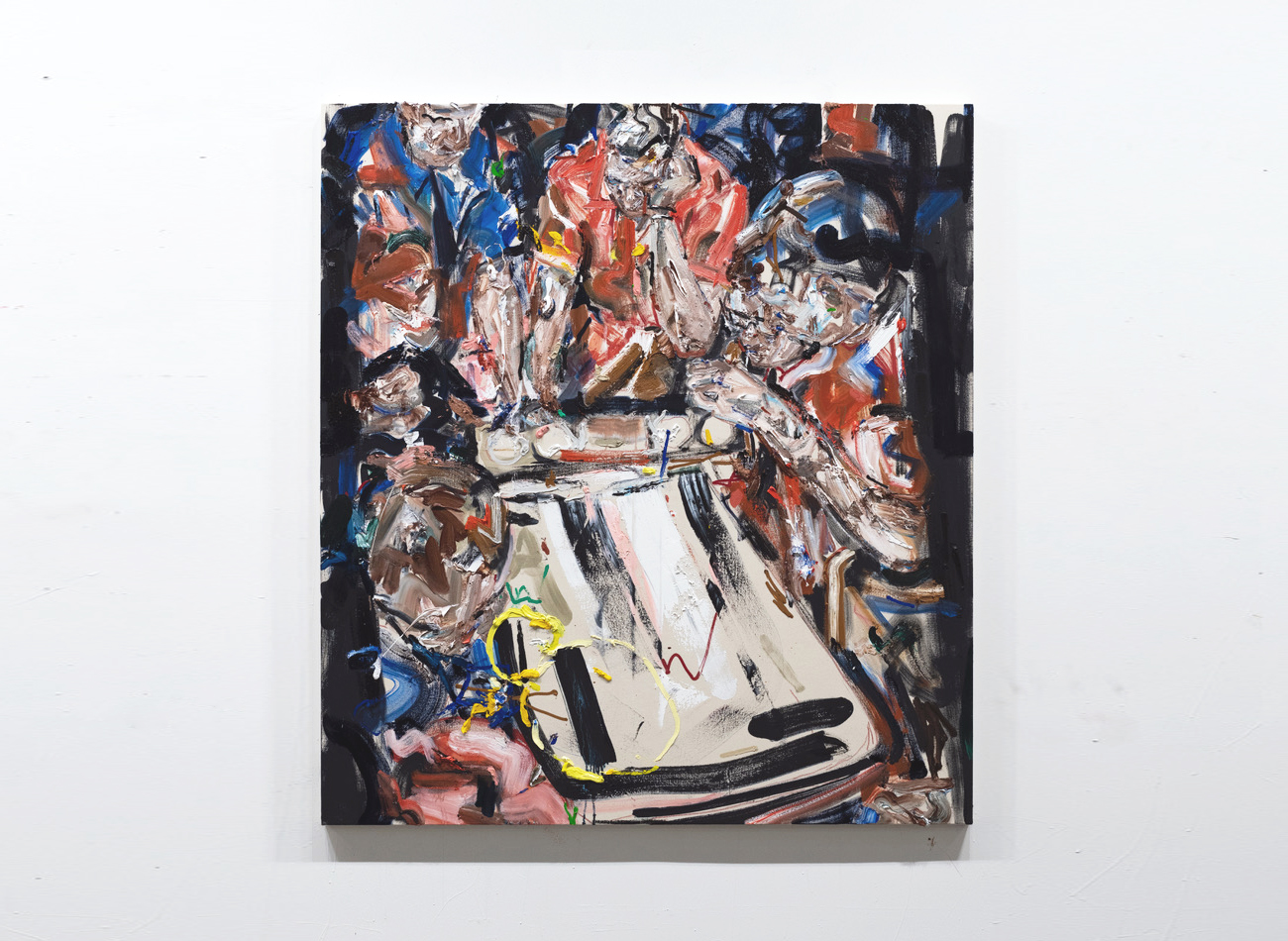Night Shift at High Noon, completed under lockdown in New York in the spring of 2020, revisits themes that Copeland has explored extensively over a number of years. Alluding to established art historical tropes, the work sees figures gather around an activity or a table. Copeland goes far beyond the early attempts at deconstructed compositions of the same subject, experimented with by Paul Cézanne and Vincent Van Gogh, his scene is entirely abstracted as he stretches his forms across the breath of the canvas with thick applications of paint. Over time, Copeland’s work has moved increasingly towards abstraction, and in these works he subverts expectation by taking the object at the centre of the subject’s activity or attention, and abstracts it even further, breaking up and complicating the subject-ground relationship.
In doing so, he wrestles with the relationship between figuration and form, the work is as much about the material process of building the composition as creating the perfect finished image.
Much of Copeland’s work deals with the body and human interaction, and he has stated that the themes within this painting now seem more relevant than ever, stating: ‘the inability to have physical interactions with others, the suspension of touch, in a way makes them feel even more visceral.’ The flattening of space between the subjects and their setting makes this even more prescient. It suggests our heightened awareness of our surroundings and how we are often determined by them
(By Thea Gregory)
